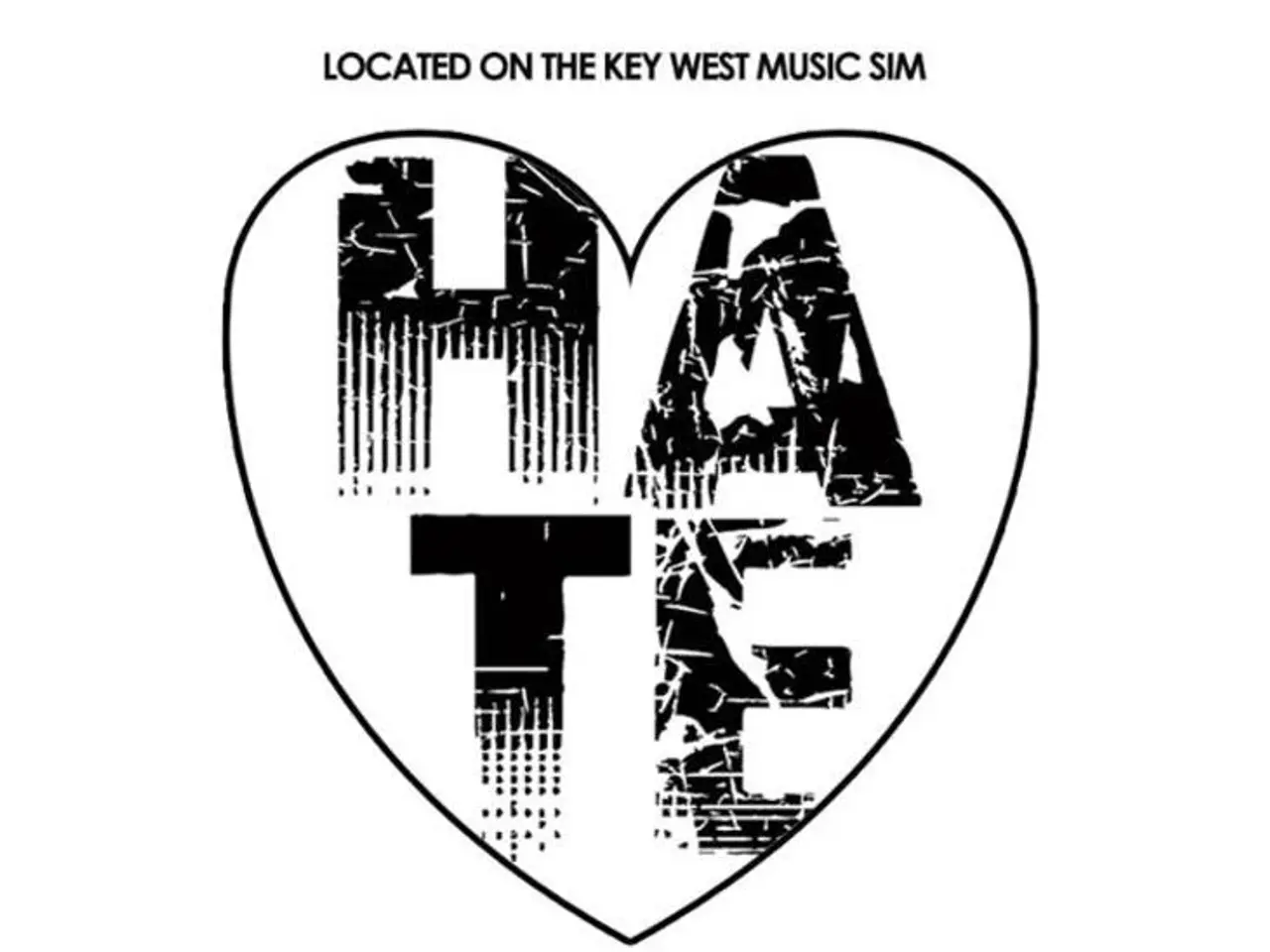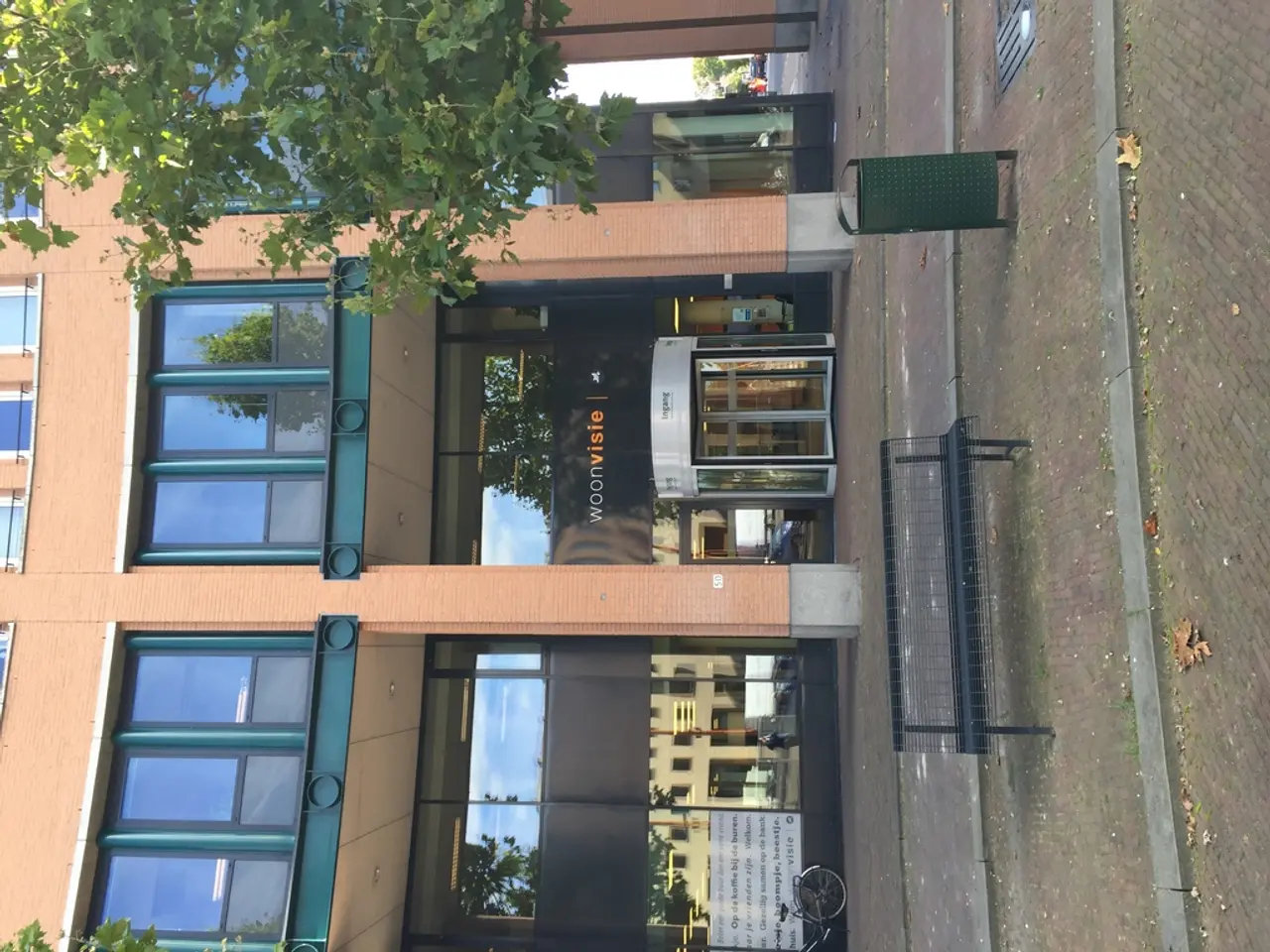Sounding the Alarm: Most Germans Urge Action Against Online Hate and Hate Speech – RTL Poll uncovers alarming stats!
A significant number of Germans call for internet-based political intervention - Online Hostility:significant portion of Germans call for political intervention to combat internet hatred
🕒 Around 2 min read
Cyberbullying, verbal abuse, and threatening statements: Nearly 75% of Germans have encountered such behavior online, according to a poll by the Forsa institute on behalf of RTL, highlighting the need for action on this World Day Against Hate Speech (June 18).
World Day Against Hate and Hate Speech on cyberspace - June 18
A staggering 71% of respondents reported witnessing hostile, disrespectful, or aggressive remarks on the internet at least occasionally. Younger individuals and frequent social media users are more likely to have experienced this unpleasant online reality. However, only 16% have personally been targeted by hate speech. Interestingly, 84% confess to having no personal encounters with online hate. Unsurprisingly, the trend follows—the more involved in the digital realm, the higher the likelihood of facing hate-fueled comments.
Despite personal experience, a resounding 70% of respondents feel the government isn't doing enough to counter online hate and demand more action. Even a significant chunk (55%) of AfD supporters hold this view, contrary to the belief that stricter measures curb free speech. On the contrary, only 14% believe the efforts against online hate restrict personal freedoms. An overwhelming 83% reject this notion.
The United Nations announced the first-ever World Day Against Hate Speech in 2021, with Secretary-General António Guterres spotlighting the concern of the spread of hate through Artificial Intelligence (AI) and biased algorithms. Guterres emphasized the Importance of counteracting toxic narratives with positive messages and empowering individuals to recognize, reject, and defend against hate.
RTL Germany is backing the initiative "Together. Against Hate and Hate Speech" on this special day. The channel will dedicate its report this week to discussing the pervasive online culture's impact, offering practical solutions, and outlining available resources: How survivors cope with it? What is the psychological impact of cyberbullying on children? What help is available? What legal avenues exist, and what plans does the Ministry of Digital Affairs have in place?
The Forsa institute surveyed 1002 participants on behalf of RTL Germany between June 10 and 12, 2025, ensuring a representative sample with a 3% statistical error margin.
📝 Keywords: Hate, Hate Speech, Forsa, Polling Institute.
Notes:* In recent years, the German government has implemented a series of policies and actions to combat online hate speech as shown in the poll data and policy developments around the time of the survey.
Current Combating Strategies
Network Enforcement Act (NetzDG) – Since 2018, Germany requires major social media platforms (theres 2 million+ users) to purge 'illegal' content, including hate speech within 24 hours and all illegal content within 7 days, or face fines of up to €50 million. The law also mandates content storage for 10 weeks and bi-annual transparency reports on handling illegal content. The law's aim is to reduce online hate and misinformation by making platforms accountable for content moderation. However, criticism arises over the incentive to potentially over-censor legal speech due to the risk of heavy fines[1].
Government and Security Agency Action – Beyond the NetzDG, German authorities collaborate to attribute and respond to cyberattacks and malicious online behavior, including online hate and extremist content. This comprehensive approach includes international cooperation, transparency in attribution, and enhanced resilience measures against online threats[2].
Enforcement and Legal Prosecution – Germany maintains a Central Office for Combating Internet Hate Crime (Zentralstelle zur Bekämpfung von Hasskriminalität im Internet). The agency aggressively prosecutes hate speech offenders under expanded laws, such as Section 188. Enforcement efforts range from police raids to fines. The government's hard-line stance aims to deter online hate speech and intimidation tactics[5].
Forthcoming Initiatives
European Union Digital Services Act (DSA) Compliance – Aligning with EU regulations, Germany supports the implementation of the Digital Services Act, which imposes stricter transparency, risk assessment, and content moderation obligations on very large online platforms (VLOPs). The DSA requires platforms to improve user reporting systems for hate speech, expedite follow-ups on reports, remove illegal content, and inform law enforcement of serious offenses, enforcing restrictions on harmful online content[4].
International Cooperation and Cybersecurity Enhancements – Germany seeks to enhance cooperation with international partners such as the EU and NATO to share knowledge, improve attribution procedures, and take coordinated countermeasures against cyber threats and hate speech perpetrators. These efforts aim to combat evolving tactics employed by anonymized actors on the internet[2].
- The community and employment policies of RTL Germany, in collaboration with the government's initiatives such as the Network Enforcement Act (NetzDG), are essential in countering online hate speech, especially considering that 70% of respondents feel the government isn't doing enough in this regard.
- In the digital age where social-media, entertainment, politics, and general-news platforms are widespread, it's crucial for all sectors to take notice of the pervasive online culture and implement measures to combat hate speech, like the European Union's Digital Services Act (DSA) compliance and international cooperation against cyber threats and hate speech perpetrators.








